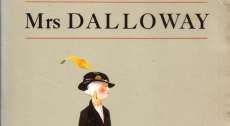
Email: reecejordan98@hotmail.co.uk
Total Article : 168
About Me:18-year-old sixth form student, studying English Literature, History and Government and Politics. My articles will broadly cover topics from the current affairs of politics to reviews of books and albums, as well as adding my own creative pieces, whether it be short fiction or general opinion.

Both equipped with their sexually charged weapons – Peter with his ‘large pocket-knife’ and Clarissa with her ‘scissors’ – the proceeding trivial dialogue is prefaced thus:
So before a battle begins, the horses paw the ground; toss their heads; the light shines on their flanks; their necks curve. So Peter Walsh and Clarissa, sitting side by side on the blue sofa, challenged each other.
The domestic setting of a conversation ‘side by side on the blue sofa’ has been transformed into a battleground; the two using their words as weapons – both trying to inflict pain on the other, trying to get the ascendancy. This is not an ‘exquisite intimacy’ as Peter Walsh believes, but one of corrosive excess. Thus, Peter Walsh is not the hero Sally Seton, their childhood friend, believes him to be. He could not ‘carry off Clarissa to save her from… the Dalloways… who would ‘stifle her soul’, but that he himself would ‘would destroy… the privacy of the soul.’ R. L. Chambers notes that Virginia Woolf ‘saw as the great evil in human conduct the sin of possessiveness,’ and Walsh, with his insistence on penetrating Clarissa’s soul with his sharp, pocket-knife incisions, encapsulates this ‘sin’.
J. W. Beach has said of the characters of Woolf’s novels that ‘they marry people of their own class rather than those they love, but there is little suggestion of the agony of unsatisfied love or the fruitful ennui of a love of convenience.’ This cannot be said for Mrs. Dalloway. The ‘agony of unsatisfied love’ is typified in the knowledge that Clarissa ‘had borne about her for years like an arrow sticking in her heart the grief, the anguish’ of not marrying Peter Walsh, and the ‘fruitful ennui of a love of convenience’ is seen most vividly in the parallels between Clarissa and Septimus Smith. In a preface to the novel, Woolf reveals that Septimus ‘is intended to be [Clarissa’s] double.’ The complexities of this doubling will be elaborated on below, but what is of importance here is the way in which the novel reveals most openly this parallel. ‘She felt very much like him,’ we are told, and this is after she gains the knowledge that he had killed himself. It must be noted that Septimus decides to commit suicide after Dr. Bradshaw wishes to change his mind’s ‘proportion’. Clarissa highlights the distinction between herself and Septimus, which underscores the ‘fruitful ennui of a love of convenience’: ‘if Richard had not been there reading The Times, so that she could crouch and gradually revive… she must have perished. She had escaped. But that young man had killed himself.’

0 Comment:
Be the first one to comment on this article.